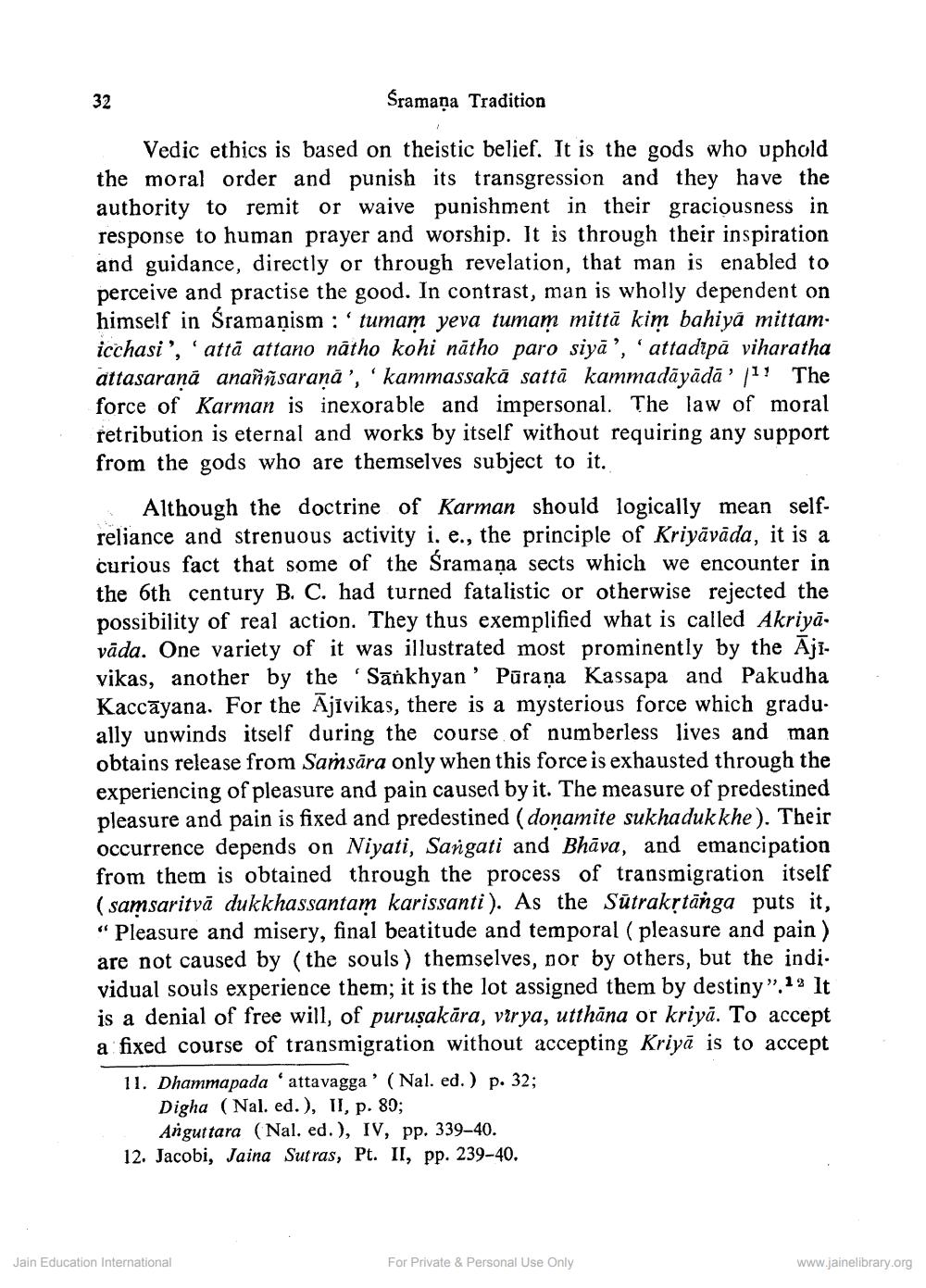________________
Sramana Tradition
Vedic ethics is based on theistic belief. It is the gods who uphold the moral order and punish its transgression and they have the authority to remit or waive punishment in their graciousness in response to human prayer and worship. It is through their inspiration and guidance, directly or through revelation, that man is enabled to perceive and practise the good. In contrast, man is wholly dependent on himself in Śramaņism : ' tumam yeva tumam mittā kim bahiya mittamicchasi', 'attā attano nātho kohi nātho paro siyā', 'attadipā viharatha attasarana anaññsarana', 'kammassakā sattā kammadāyādā' /1! The force of Karman is inexorable and impersonal. The law of moral retribution is eternal and works by itself without requiring any support from the gods who are themselves subject to it.
Although the doctrine of Karman should logically mean selfreliance and strenuous activity i. e., the principle of Kriyāvāda, it is a curious fact that some of the Sramaņa sects which we encounter in the 6th century B. C. had turned fatalistic or otherwise rejected the possibility of real action. They thus exemplified what is called Akriyā. vāda. One variety of it was illustrated most prominently by the Ajivikas, another by the Sankhyan' Pūrana Kassapa and Pakudha Kaccāyana. For the Ajīvikas, there is a mysterious force which gradu. ally unwinds itself during the course of numberless lives and man obtains release from Samsāra only when this force is exhausted through the experiencing of pleasure and pain caused by it. The measure of predestined pleasure and pain is fixed and predestined (donamite sukhadukkhe). Their occurrence depends on Niyati, Sangati and Bhāva, and emancipation from them is obtained through the process of transmigration itself (samsaritvā dukkhassantam karissanti). As the Sütrakstānga puts it, “Pleasure and misery, final beatitude and temporal (pleasure and pain ) are not caused by the souls) themselves, nor by others, but the indi. vidual souls experience them; it is the lot assigned them by destiny". 19 lt is a denial of free will, of puruşakāra, virya, utthāna or kriyā. To accept a fixed course of transmigration without accepting Kriyā is to accept 11. Dhammapada'attavagga' (Nal. ed.) p. 32;
Digha (Nal. ed.), II, p. 89;
Angut tara (Nal. ed.), IV, pp. 339-40. 12. Jacobi, Jaina Sutras, Pt. II, pp. 239-40.
Jain Education International
For Private & Personal Use Only
www.jainelibrary.org




